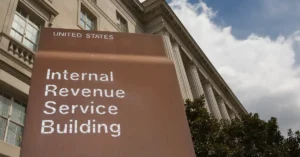When you first receive the notification, an IRS office audit can feel an awful lot like being sent to the principal’s office.
It’s normal to panic and wonder about your next steps at this point. How can you prepare to make sure you pass with flying colors? Are there any special documents you need to bring with you?
Today, we’re breaking down the specifics of what an office audit entails. We’ll also share the steps to follow that can optimize your chance of success.
Ready to learn more? Let’s get started.

What is an IRS Office Audit?
As its name implies, an IRS office audit is a request for a taxpayer to appear at his or her local IRS office. Once you arrive, you’ll have an in-person meeting with an IRS examiner to discuss concerns surrounding your recently completed tax return.
Your official notice to appear will include details on the specific documentation you should bring and any other special procedures to follow.

IRS Office Audit Vs Other IRS Audits
- Schedule A (itemized deductions)
- Schedule C (business profit/loss)
- Schedule E (rental income/expenses)
- Schedule F (farming)
Small business owners are likely to be called to attend an office audit, as they deal with more paperwork than the average taxpayer.

What Happens if You Get Audited?
Wondering how you’ll find out if you’re required to attend an IRS office audit? The government makes this step easy.
You’ll receive written notification in the mail describing your upcoming meeting and the reason behind it. This document is known as an IRS Service Center Classification Sheet. It will include all of the specific, pertinent details you need for the meeting, including the time, date and location.
In addition, the sheet will also include a list of the tax items that the IRS is investigating in regards to your return. For instance, there might be a few questionable deductions that raised some red flags, or it might appear that you’ve failed to report some kind of income.
If there are any requests for more information on these items, the IRS will list them in the sheet, too.
In most cases, the IRS chooses the date and time of your meeting at random. You’re normally allowed to call or email the IRS agent listed if you need to reschedule the appointment for a better time.

What to Expect at an Office Audit
To expedite the process and make it as painless as possible, it’s important to read your notification letter forward and backward before you show up for the meeting.
Make sure you have all of your required tax return forms in hand, along with any backup documentation or supporting materials that the IRS requested. Keep them organized and neat so you can present them as such.
Questioning Process
The IRS auditor will examine the documents under investigation, ask you questions pertaining to them, and record his or her observations on Form 4700. This information is used to compile the final report.
Most of the time, the auditor will begin the audit by asking you a few questions concerning any unreported income you might need to report. Then, your auditor will likely request documentation to support the deductions listed on the Classification Sheet you received in the mail.
In most cases, your auditor will be primarily focused on verifying such tax-related issues as these. Yet, you should be prepared to share details surrounding more general areas including your:
- Financial standing
- Employment
- Lifestyle
Documentation to Bring
If the audit focuses on issues with your Schedule C, some of the items that the auditor might examine include:
- Legal or professional fees
- Auto expenses
- Home office expenses
- Commissions
If itemized deductions are in question, you might need to bring in additional data concerning these claims:
- Medical expense deductions
- Charitable contributions
- Business expenses
Understand that the forms required will vary on a case-by-case basis. In addition to the documentation listed above, a few of the other approved documentation types include:
- Canceled checks
- Receipts
- Travel and mileage logs
- Invoices
Why do you need to bring in all of this documentation? There are two main reasons.
First, the documents can help the auditor determine whether or not you actually incurred the expenses that you claimed on your tax return. Second, they also help explain whether or not the deduction was related to your business.

How to Prepare and Pass Your Office Audit
Each taxpayer’s case will be different, but there are a few strategies that you can employ to help your IRS office audit go off without a hitch.
As mentioned, the top tip is to stay organized. Remember, you’re there because there’s an issue with your tax return.
If you’re fumbling around to look for the right data, it can hurt your case. If you need additional time to gather the right materials, your auditor will normally grant you this, though it can delay the process and work against your case.
Instead, be prepared to deliver the numbers and details you’re required in a quick and efficient manner.
Another tactic is to practice brevity. In the case of taxes, it’s best to remain concise rather than spill a minutes-long backstory. Not only are most of these details irrelevant to your case, but they could also open up new doors of deeper questioning. You should answer any question presented to you in full but resist the urge to elaborate beyond that.
Finally, remember to seek the help of a qualified tax attorney!
This one step can save you a ton of headaches, stress and even money down the road. There’s the potential for the IRS auditor to expand his or her investigation, looking into different years and types of taxes. When this is the case, additional discrepancies can appear that were not a part of the original office audit.
A tax attorney can represent you throughout the auditing process. This expert can also look for ways to reduce the risk of audit expansion. He or she is also well-versed on tax law and can help you navigate even the most aggressive auditors, helping you avoid the sharing of damaging information in the process.

The Outcomes to Expect
You made it through your IRS audit. When your final report arrives, there are two standard responses you can receive.
First, the auditor can decide to approve your tax return as filed, without requiring you to make additional adjustments. Or, the auditor can choose to make adjustments to your return that you approve and agree upon, normally resulting in a tax increase.
If you disagree, either in part or in full, with any of the auditor’s adjustments, you are within your rights to contest them.
Your first course of action should be to speak with the auditor’s manager. You might be able to resolve the issue this way.
If you’re still not satisfied or you’re left with unresolved issues, you can request an official appeals hearing. An unbiased IRS appeals officer will conduct the hearing within the IRS Independent Office of Appeals.
If the issue isn’t decided in your favor, you can take your case further. At that point, it will go to a hearing at the U.S. Tax Court.
If your audit reaches this level, it’s strongly advised to have a tax attorney by your side. While you can represent yourself in court, you’ll have a stronger and more thorough defense with the support of a qualified legal team who knows how the process works.

Find a Tax Attorney and Ace Your Audit
From the minuscule to the massive, there are many issues that can plague your tax return.
Navigating them all on your own can be overwhelming, confusing and stressful. This is especially the case if you’re called to attend an IRS office audit.
If you’re facing an IRS tax audit of any kind, don’t hesitate to contact us immediately. Our attornies are experienced in audit defense and we’re ready to help you put this challenge behind you.








